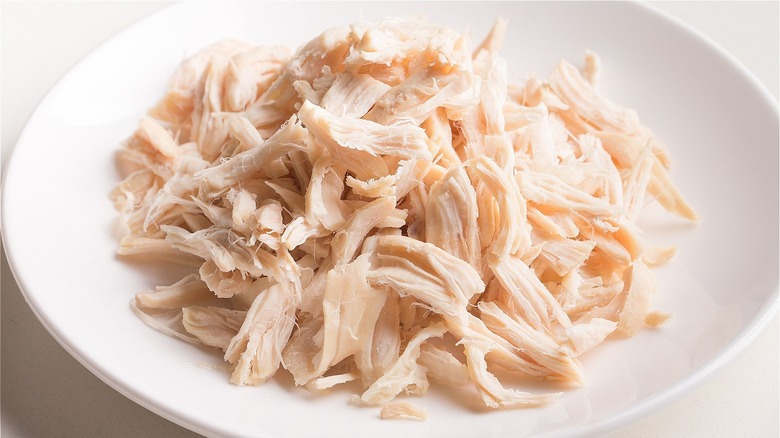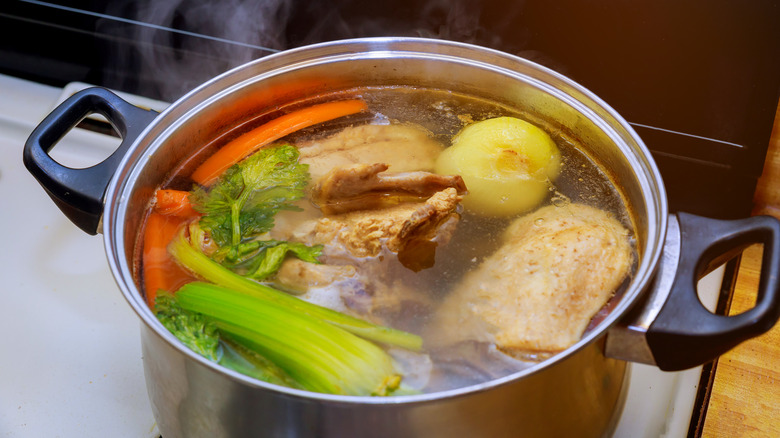Here's Why Your Chicken Foams When It's Boiling
Those striving to cook low-calorie yet nutrient-rich foods may opt for boiled lean chicken, an economical and healthy option for just about any dish. You may be boiling chicken to make chicken stock, chicken salad, chicken noodle soup, or a family favorite, like broccoli chicken casserole. But wait, what is that foam floating over your boiling chicken? You may have noticed a whitish, grayish substance forming around the edges of your cooking pot or atop your boiling water. Is this a cause for alarm? Is this strange ooze really coming from the chicken?
Fortunately, this foam is completely safe for consumption, but you can always skim it off the boiling water if it's not a desired part of your go-to healthy chicken recipes. The reason why your chicken foams when it's boiling boils down to, for lack of a better expression, the nature of the meat in general. If you'd like to impress your friends with your scientific knowledge, here's the explanation.
The foam on boiling chicken is known as scum
"It is known as scum, not the most pleasant name," Mark Traynor, Associate Professor and Director of Culinary Science at Auburn University, said to Southern Living about the foam on top of your boiling chicken. The substance consists of two main culprits: water and proteins. When cooking chicken at a high temperature, some water leaches out of the meat, carrying "a small amount of sarcoplasmic protein" that coagulates or "denatures and assumes a foamy, frothy appearance," Jeff Sindelar, a scientist in the UW-Madison Meat Laboratory, explained to Wisconsin State Journal.
The foam is caused by water-soluble proteins, which means this substance can appear when you're boiling any kind of meat or high-protein food, not just chicken. According to Traynor, certain vegetables, legumes, and eggs can produce the same foaming effect when boiled. While scum is considered an impurity in stocks and sauces, it's perfectly edible. But if you want it gone, try reducing the heat to lower the amount of scum that forms, or even adding an acidic ingredient to draw the scum to the top, making it easier to skim off. Lastly, boiling any meat with the right technique paramount to getting the best results, so here's the right way to boil chicken for your soups, salads, and beyond.

